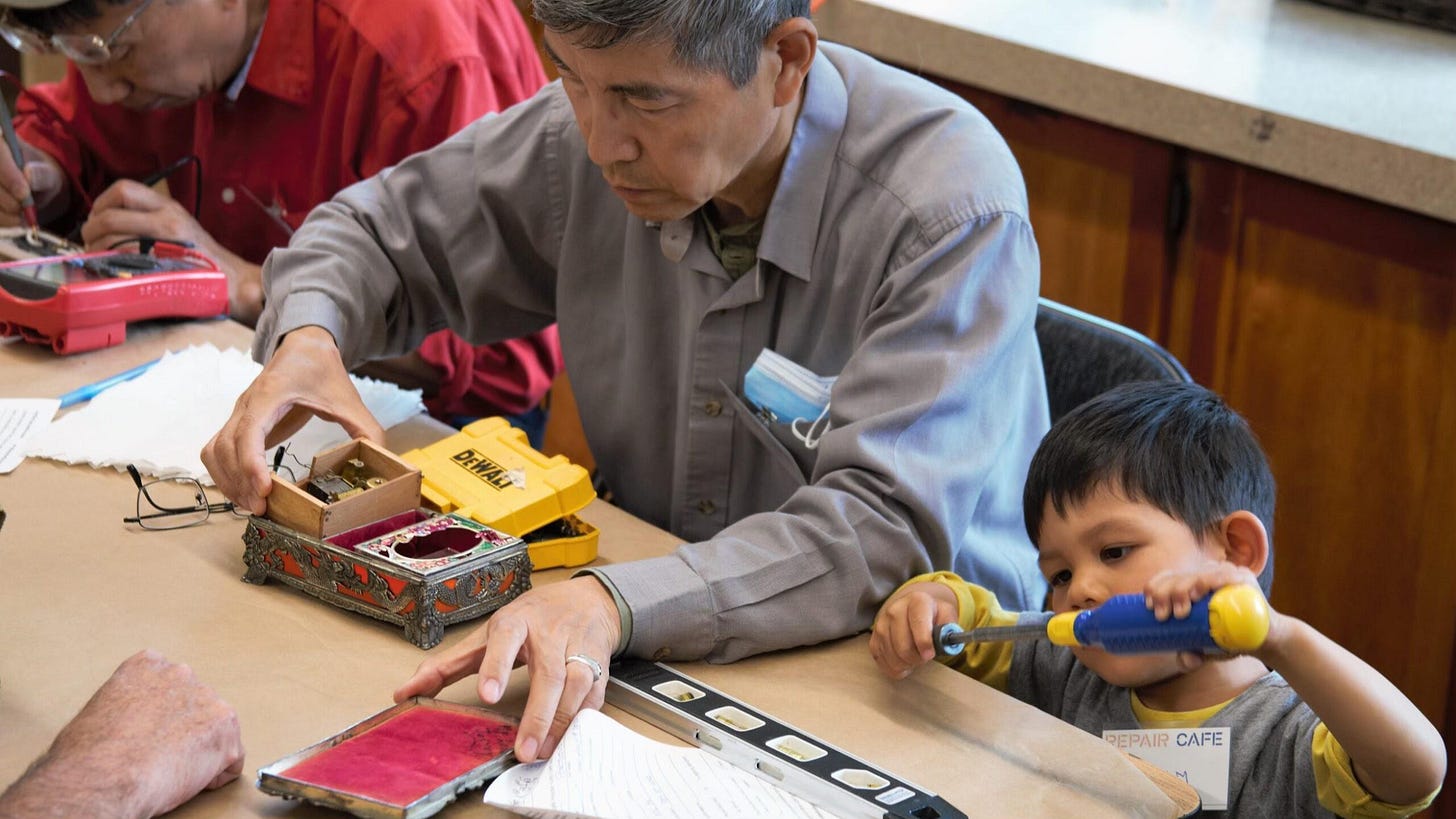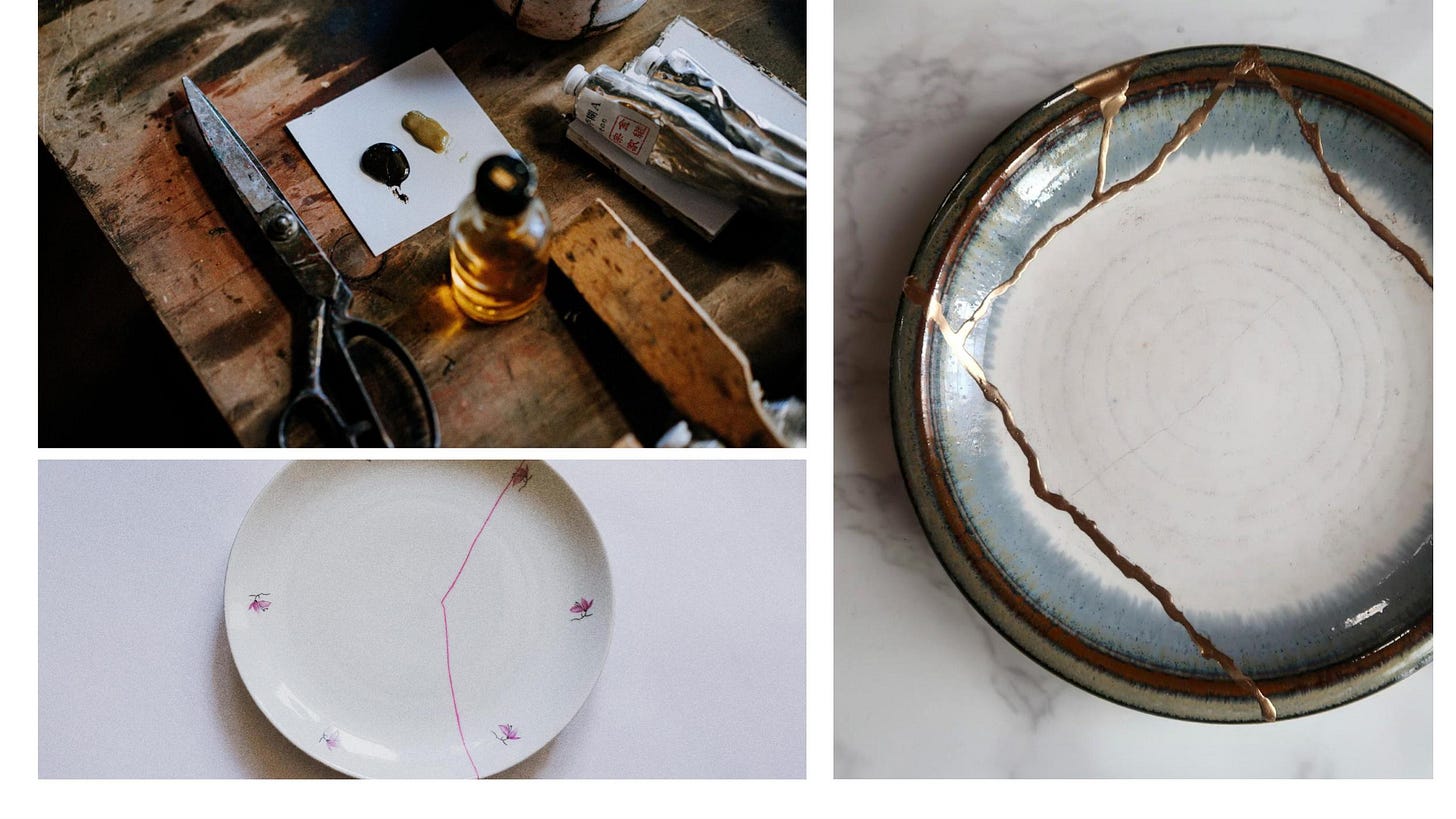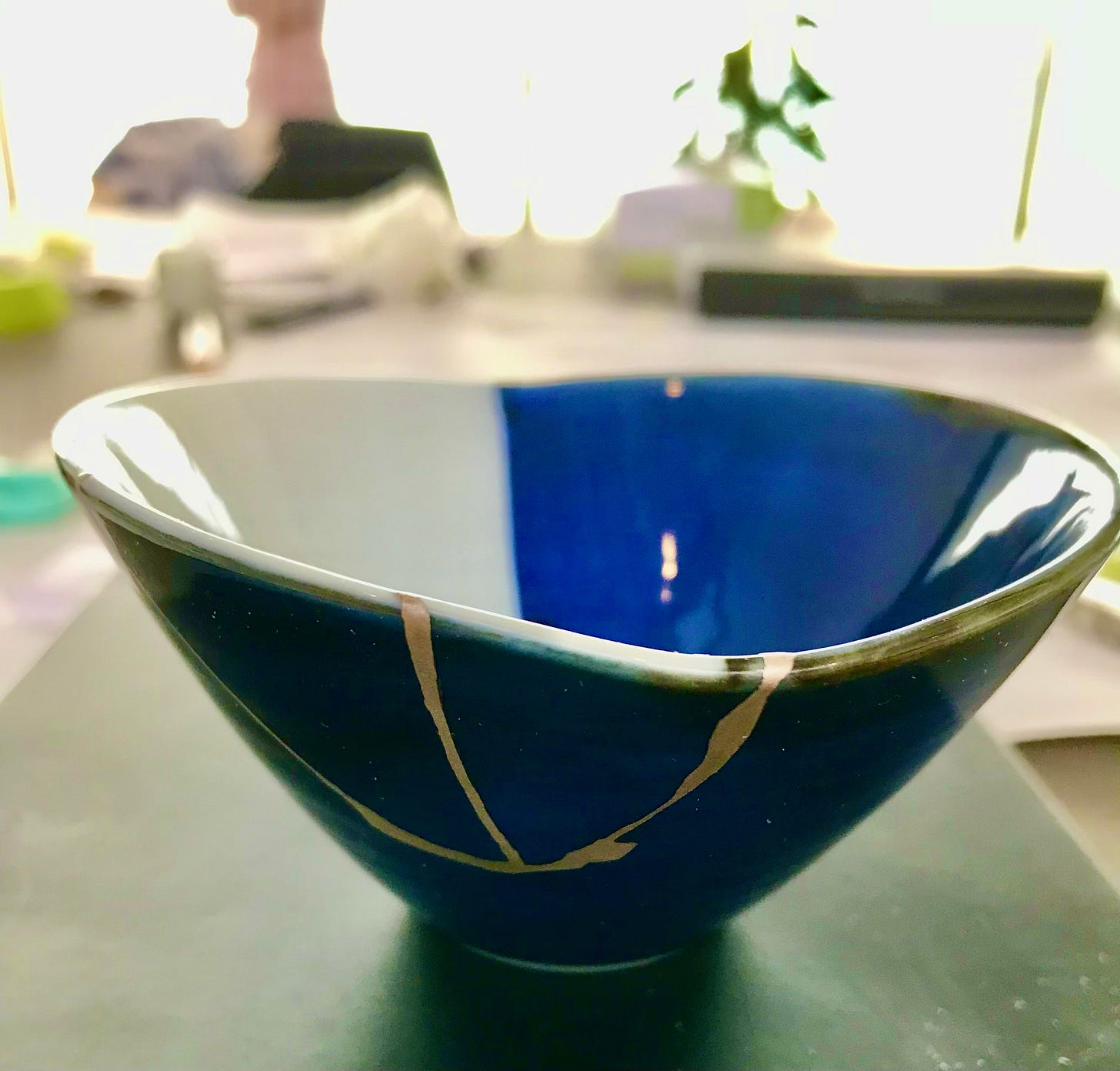An apology and correction.
Last week I asked for feedback on a paragraph of my upcoming book. It was pointed out to me that I had used the possessive to describe Indigenous People in relation to Canada. This is something I work hard at avoiding, but failed to do so in this instance. Thank you to those of you who pointed this out. The wording was corrected right away on Substack, but a public error requires a public correction. I apologize for the ways that my words reinforced ways of thinking that continue to diminish Indigenous Peoples and I am grateful for the correction in order to be able to do better.
This week’s post:
This is a copy of a talk given in Banff to the Pastor’s Conference of the Canadian Baptists of Western Canada in November of 2024. The talk was in a TED talk style.
Teaser: Did you know that there was a discipleship tool that was widely discussed in the church until the mid-1600s when it started to fall out of favour until it virtually disappeared 150 years later, even though it is a practice that runs through the bible? Come find out what that tool is. Consider how recovering it might meet a need you already feel in your ministry and could even be a path to the joy of Zacchaeus (you know, the short guy who climbed trees).
Friends, does this photo describe your feelings about being in ministry? I am not promising this as an outcome of coming to my talk. But I do want to consider this joy as a possible byproduct of recovering an art of repair in our ministry toolboxes. And I want us to hold this as a possible picture of Zacchaeus as he set about the work of repair in Luke 19.
But, if we are going to find joy we might need first to find some sorrow. There are no rainbows without some rain. So let me tell you a true story about an egg.
I live in a neighbourhood that is kind of a 1950s throwback where you still borrow a cup of sugar from your neighbour, the children run outside in packs, and any adult is allowed to reprimand them if they are doing something wrong. Kids also interact with adults to whom they aren’t related. One afternoon I was headed outside and saw the resident pack of children huddled around an object they were passing around carefully. Kardine, who was 5 at the time, spotted me and said, look, Jodi, my Grandpa and I made a squishy egg. Do you want to hold it?
I thought about making some of these eggs for you so you too could hold such a phenomenon, an egg soaked in vinegar so that the shell basically dissolves into a rubbery coating. But I flew here and there are so very many ways transporting those eggs could have gone wrong. So, no eggs for you.
Kardine passes me his precious egg, and I hold it very carefully. I have never encountered an egg like this. I only know about the vinegar from researching it afterwards. “You don’t have to be so careful,” he says. “It’s very strong. You can bounce it. You can squeeze it. Try,” he urges with his little five-year-old eyes and his five-year-old hands. So squeeze it I did, with my larger and stronger than 5-year-old hands, and it burst, egg splattering everywhere. The shell might dissolve but the insides are still very much raw egg.
And Kardine’s face falls. And very quickly and as generously as his little broken heart could muster, he repeated the adage he had heard many times before, “It’s ok. Accidents happen.” Which made my fumbling sorry feel even more inadequate.
Sorry wasn’t enough. I wanted to repair the damage I had done. There was no putting the egg back into its rubbery shell and even if I made another rubber egg (hence my aforementioned research) I couldn’t return the egg he and his grandfather had bonded over just before his Grandfather flew back to Afghanistan.
Do you ever feel like sorry isn’t enough and we need to at least try to repair the harms?
We live in challenging and fractured times. A lot more is broken than just some eggs on the sidewalk. The world is in need of repair. The church is in need of repair. We ourselves are in need of repair, there are fissures that run through every aspect of our lives and our world.

Does it feel to others like sometimes we just don’t have the right tools in our toolbox to set about the work of repair in front of us? Do we even think about the work of repair as ours to do as ministers of the gospel of Jesus Christ?
What if I told you that a set of repair tools were deliberately taken out of our ministry toolboxes and that now might be a time for us to consider recovering them?
You can track a theological conversation about repair that ebbs and flows but is consistent from the book of Leviticus through to the early days of the European settling of North America. In the mid-1600s, begins a steady decline in talk about reparations in the church until the end of the Civil War in the U.S. At that point, a deliberate decision was made by theologians and pastors that in order to heal the rifts of the Civil War talk or reparations would need to be set aside in favour of forgiving, forgetting and moving on. Prior to this point, no one would have argued theologically that you can ask for forgiveness and not do something to demonstrate your desire to repair the wrong for which you needed forgiveness. We have been living in the shadow of this decision ever since. I want to argue that it is past time to pick up repair as a theological tool of discipleship and ministry.
Let’s come back to Zacchaeus in Luke 19. Since these decisions about forgiveness without repair we have made Zacchaeus into a children’s story. Spoiler alert, the most important thing about Zacchaeus is not that he is short,it is not about hospitality, and being like Jesus including the tax collector who was bullied.
The key moment in the text, you know it, is when Jesus says, “Today salvation has come to this house.” which I believe is meant to send us scrambling back into the story to find when when did this amazing thing happen. These aren’t words Jesus throws around. We realize that it is this crazy declaration that Zac will pay back those he has cheated, and he will pay the poor, a recognition of the systemic impact of his participation in an exploitative system. Zack’s actions are utilizing the tools of repair that are present in the Hebrew Scriptures. While he goes above and beyond any of the specific requirements for making amends in situations of harm, he is riffing on a theme, not making this up from scratch.
A tool to help us understand the art of repair might be the Japanese art of kintsugi.
Kin means gold, and tsugi means to mend. So, kintsugi is literally mending with gold. But this mending is not meant to erase the breakage. It is not to restore the item to “like new” condition. Instead, it tells the story of the break and transforms it. Even though items may be hundreds of years old, they don’t become museum pieces to be looked at; the idea is that they are returned to service, they are made usable again, and they are even more beautiful and precious.
We live in broken times. The fissures run deep, and some of them even reach back to before any of us were even born. I struggle with the idea of the church being the mender of broken things because it feels like we break a lot more than we mend sometimes. At the same time, I do believe that God longs to use the church to bring mending, and a mending with gold. But I think we pour into this work of mending imperfect materials. Zacchaes poured in dirty money, we pour in small and often insignificant offerings, and I believe God does some crazy alchemy, and transforms our imperfect materials into pure gold. There are tools for mending that we can recover. Then, we need to learn to celebrate the illumination of the repaired fissures, not hide them away, and try to pretend the break never happened.
Consider the joy of Zacchaeus, setting about the work of repair like a first-century Scrooge newborn on Christmas morning, eager to mend the rifts. Consider the joy of the risen Christ, the first kintsugi artist who, on Easter morning, rose with scars still visible but who demonstrated to us that these mortal wounds were not the end of the story.
Friends, I leave you with these words from kintsugi artist and theologian Makoto Fujimura.
“Your generation will mend, and pour gold into the fissures of our broken times. And you can not only mend; you can create anew, create a world in which an invitation will be given to those who are broken. Those who mourn, those who are persecuted and those who are poor in spirit will be offered a great light. Your lives can be an offering of peace in a divided time — a gesture of hope for those in despair…And know that your own wounds may be the entry point.”1 Consider the joy.
Fujimura, “Kintsugi Generation” (2019 Judson University Commencement Address), www.makotofujimura.com accessed May 9, 2024 https://makotofujimura.com/writings/kintsugi-generation








